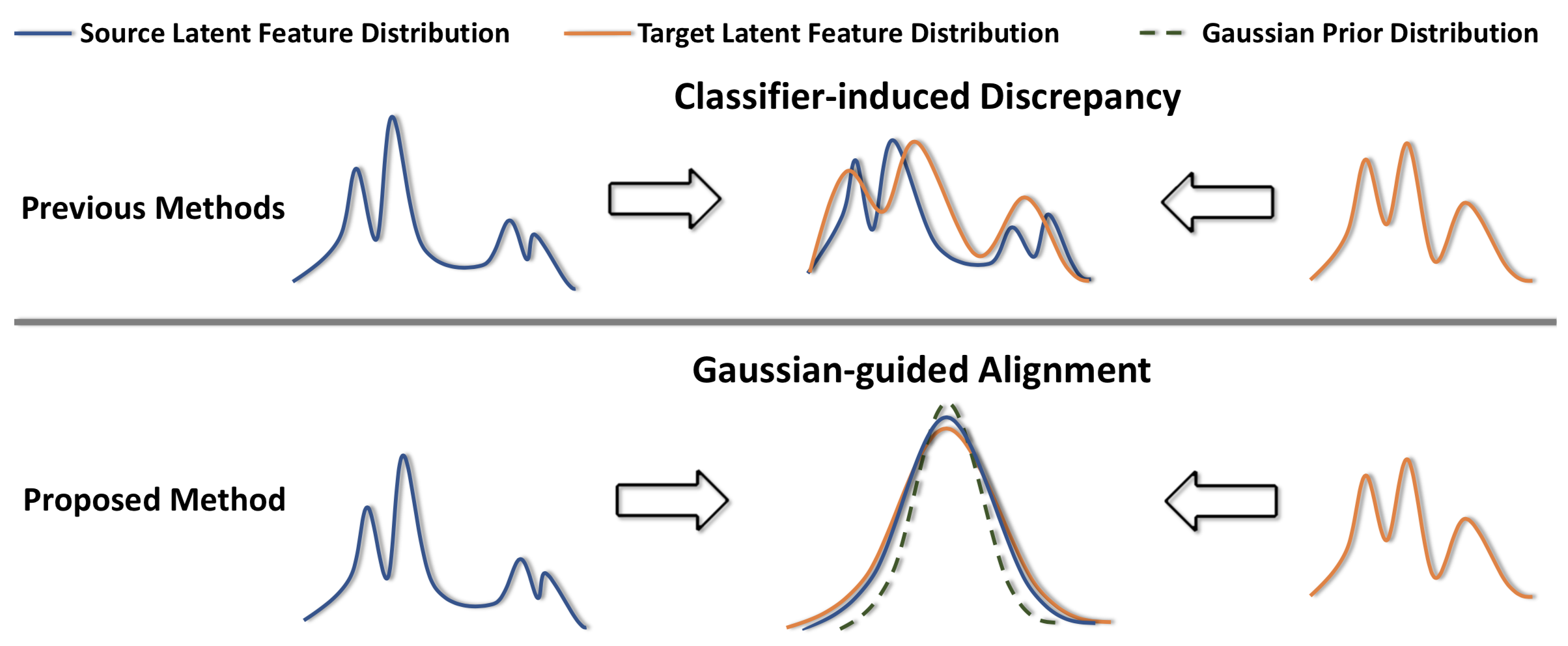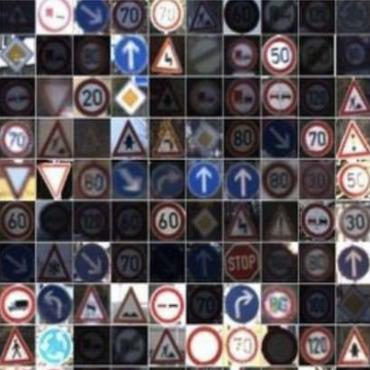Discriminative Feature Alignment: Improving Transferability of Unsupervised Domain Adaptation by Gaussian-guided Latent Alignment
In this study, we focus on the unsupervised domain adaptation problem where an approximate inference model is to be learned from a labeled data domain and expected to generalize well to an unlabeled data domain. The success of unsupervised domain adaptation largely relies on the cross-domain feature alignment. Previous work has attempted to directly align latent features by the classifier-induced discrepancies. Nevertheless, a common feature space cannot always be learned via this direct feature alignment especially when a large domain gap exists. To solve this problem, we introduce a Gaussian-guided latent alignment approach to align the latent feature distributions of the two domains under the guidance of the prior distribution. In such an indirect way, the distributions over the samples from the two domains will be constructed on a common feature space, i.e., the space of the prior, which promotes better feature alignment. To effectively align the target latent distribution with this prior distribution, we also propose a novel unpaired L1-distance by taking advantage of the formulation of the encoder-decoder. The extensive evaluations on nine benchmark datasets validate the superior knowledge transferability through outperforming state-of-the-art methods and the versatility of the proposed method by improving the existing work significantly.
PDF Abstract












 ImageNet
ImageNet
 MNIST
MNIST
 SVHN
SVHN
 Office-Home
Office-Home
 Office-31
Office-31
 USPS
USPS
 GTSRB
GTSRB
 VisDA-2017
VisDA-2017
 ImageCLEF-DA
ImageCLEF-DA
